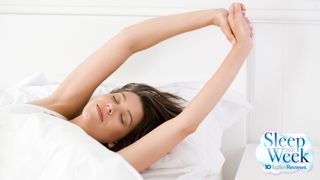In results published today, the National Sleep Foundation’s random-sample survey revealed that 70% of respondents in Daylight Saving Time-observed states said the time changes aren’t a problem for them in either direction, and that they don’t think their sleep, routines, or moods are affected. “We’re seeing gaps between what the public thinks and both published research and real-world observations on the clock change’s effects on health.” Said Dr. Rick Bogan, Board Chair of the National Sleep Foundation, in a press release (opens in new tab) announcing the annual Sleep In America poll results. “Evidence has shown that changing the clock twice a year is detrimental to our circadian rhythm and overall health and safety including cardiovascular events, mental health issues and even traffic fatalities.” Other highlights of the National Sleep Foundation poll include:
54% of respondents preferred year-round Daylight Saving Time, with the clocks going forward an hour. 19% preferred year-round Standard Time, when the clocks go back an hour in fall. One in four respondents would stick with two clock changes a year, as we have now.
Switching to permanent Daylight Savings Time
Dr Bogan went on to explain that while the majority of respondents favored a permanent change to Daylight Saving Time, switching to Standard Time permanently would better align our bodies to daily sunrise and sunset, which has a positive effect on our circadian rhythm (sleep/wake cycle). “It’s understandable why Daylight Saving Time is appealing, but it doesn’t fit our body clocks like Standard Time.” Dr Bogan added. “This is an opportunity for us to continue educating the public on the role and importance of the science behind our sleep.” According to the National Sleep Foundation (opens in new tab), most healthy adults need anywhere from seven to nine hours sleep a night. If, unlike the majority of respondents in the 2021 Sleep In America poll, you feel as though the changing of the clocks messes with your sleep, you could try introducing a sunrise alarm clock (opens in new tab) to help you feel more energized upon waking. In the darker months, a light therapy lamp (opens in new tab) could help ease Seasonal Affective Disorder symptoms you may have. Practicing good sleep hygiene (opens in new tab) will also help you maintain a more robust sleep/wake routine, as will ensuring you are sleeping on the best mattress (opens in new tab) for your posture needs and one that’s well-suited to your favorite sleep position.
What is Sleep Awareness Week 2021, and why do we need it?
This year’s Sleep Awareness Week is March 14-20, with a broad theme of ”Celebrate Sleep Health.” Sleep Awareness Week is an annual event created by the National Sleep Foundation to promote good sleep as one of the main foundations for better overall health and wellness, both physical and mental. Sleep Awareness Week was first launched in 1998, and has grown into a national public campaign that aims to help people understand why sleep is important, and how to create sustainable, healthy sleep habits for life. Each year the National Sleep Foundation launches Sleep Awareness Week to coincide with Daylight Savings, and publishes the results of its annual Sleep In America poll, looking at the nation’s sleep behaviors and beliefs about specific aspects of snoozing. To celebrate Sleep Awareness Week 2021, we too will be sharing content over the following days to help you understand why sleep should be prioritized, and how to get a better quality of shut-eye, among other topics. Here’s to making 2021 the year of better sleep for everybody.
